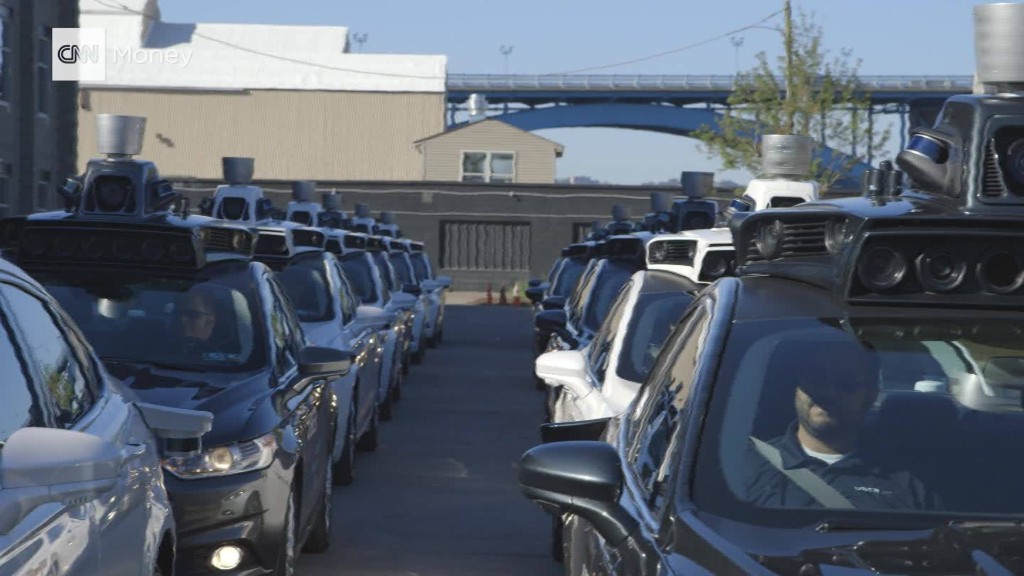
The Uber life isn't an easy ride for all in the "gig" economy.
Most of the estimated 68 million gig workers choose the freelance lifestyle for better work-life balance. But nearly 20 million of them do it out of necessity because they can't find better work or pay, according to a report by McKinsey Global Institute, a consulting firm.
A sharper narrative is rising this fall on gig workers, who have largely flown under the radar of most economic metrics. It's a booming sector that Hillary Clinton warns "raises hard questions about workplace protections and what a good job will look like in the future."
On Friday, U.S. officials report economic growth numbers. America's growth has been painfully slow and officials admit they haven't accounted for gig workers as the freelance economy has boomed. The Labor Department says it will start counting gig workers in its jobs figures by next May.
No doubt, the independent workforce -- led by companies like Uber, TaskRabbit and Etsy -- is growing fast. And for the workers who do it by choice, they report being happier than workers in the traditional 9 to 5 economy, McKinsey found.
"People value the autonomy, the independence, being your own boss," says Susan Lund, research director at McKinsey.
Still for many, the gig economy is potholed with problems, such as lost wages, not enough hours, lack of insurance and overpaying on taxes.
Nearly 30% of gig workers who work part-time would prefer a full-time job, according to a survey by Stride Health, which provides gig workers with access to health coverage.
Related: Why Trump resonates: 'middle skill' workers' wages plummet
That's concerning. Involuntary part-time work has plagued millions of Americans since the Great Recession.
About 75% of these part-timers either in poverty or are low-income individuals, according to a University of New Hampshire study.
Experts say income is very volatile for freelancers, which makes paying ordinary bills a challenge.
And the average freelancer is stiffed by employers on $6,000 a year, according to the Freelancers Union, which represents 300,000 independent workers across America.
"We don't have any protections for freelance workers in America," says Sara Horowitz, founder of the Freelancers Union who is pushing for a bill in New York City to improve worker protections. "For people who are feeling forced into this it can be difficult for them."
Related: I survived: How many Americans feel these days
It's not just about getting stiffed on a paycheck. Freelancers are challenged with registering for health care. About 35% of independent workers are uninsured, according to Stride Health.
They also lose out on taxes.
Stride Health's leaders also realized that most Uber drivers on its platform don't apply for tax deductions. A whopping 84% of drivers who applied for health coverage with Stride, which operates in all 50 states, didn't claim a single tax deduction.
That's big. Stride found that some drivers pay a 25% tax rate when they could be paying as low as 8.7% if they deducted work expenses. Drivers can deduct things like gas, tolls, mileage, water bottles for customers and a slew of other items.
The problem is a lack of financial education that could help gig workers navigate bureaucracies, experts say.
"When we really drill into that problem -- 'why are they not adding any deductions?' -- usually it's just because they didn't understand," says Noah Lang, CEO of Stride Health. For many gig workers, "There hasn't been that education, that financial guidance...to help them understand."
Correction: A previous version of this story reported that nearly 30% of Uber drivers who work part-time want a full-time job. That figure applies to all gig workers, not specifically Uber drivers.


